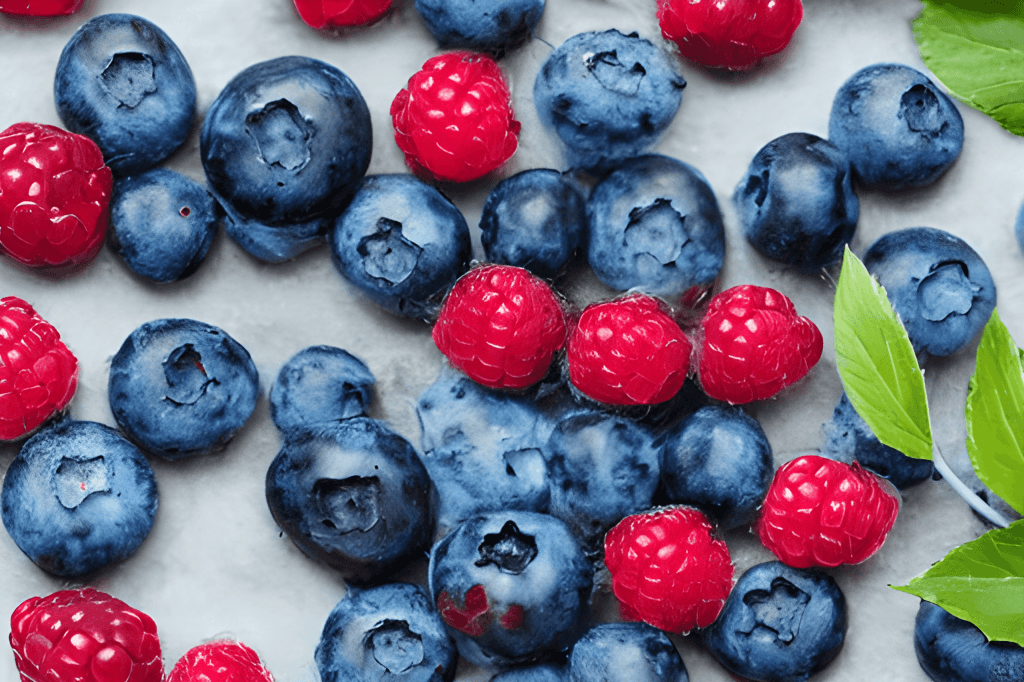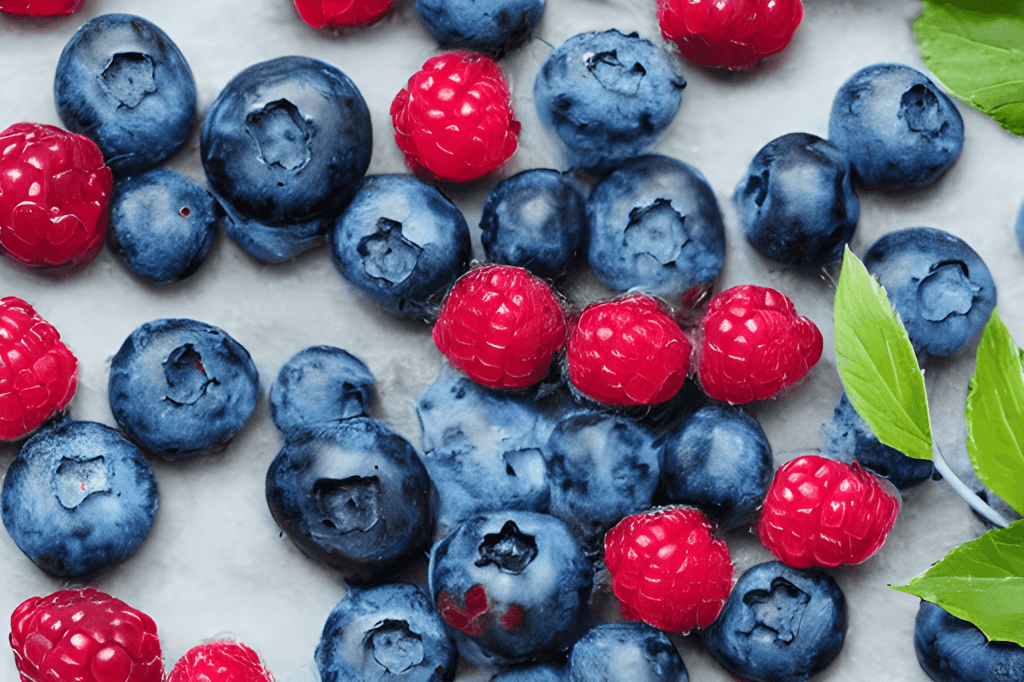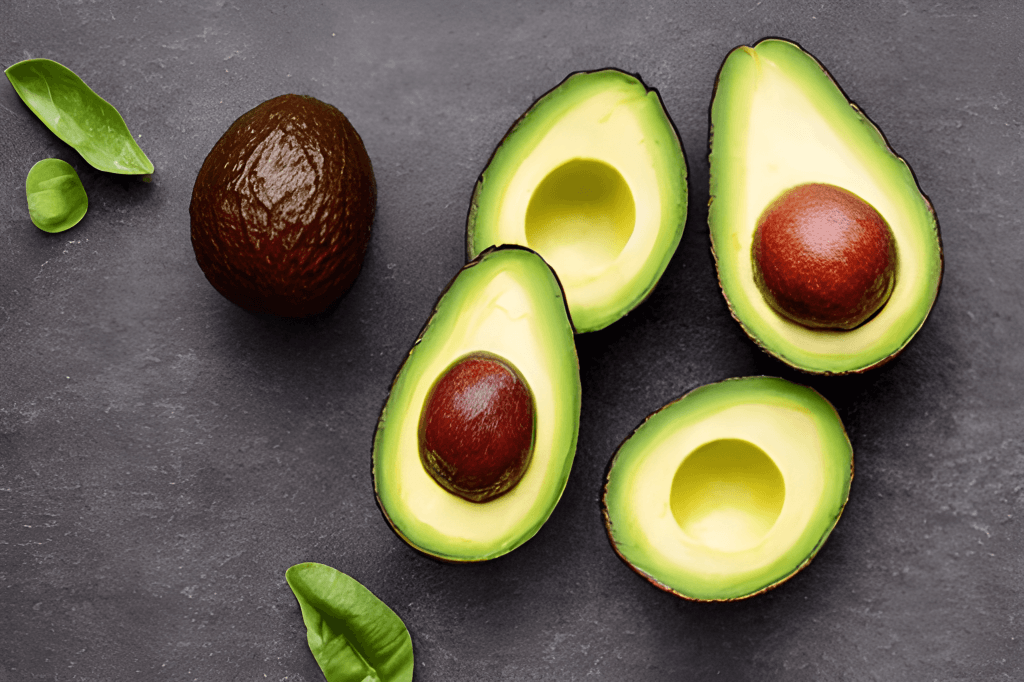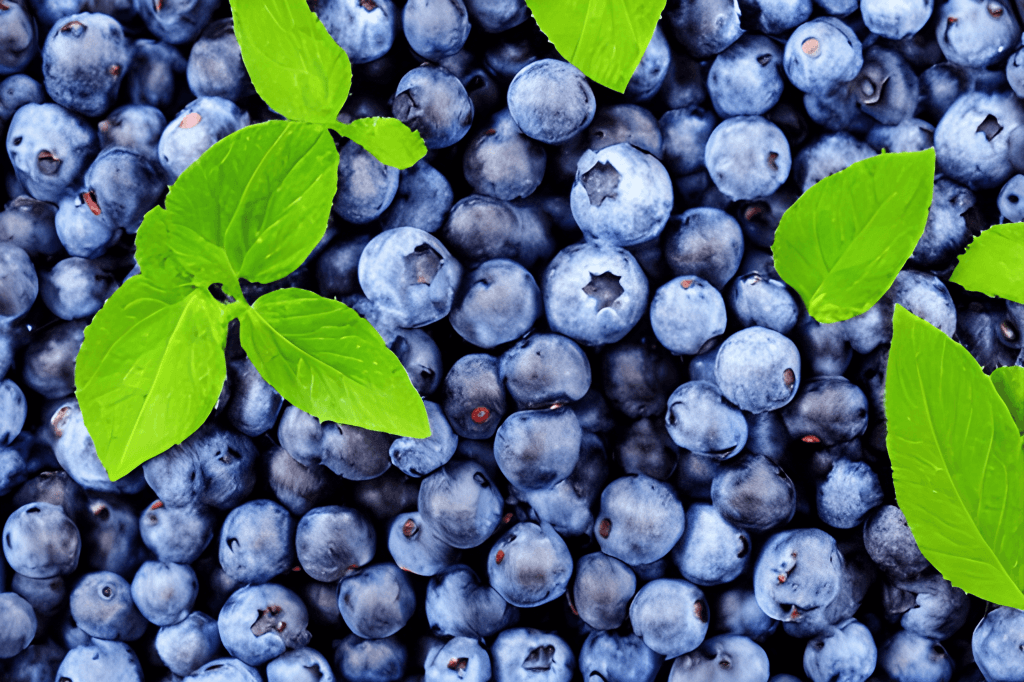Exploring the Antioxidant-rich Depths of Blueberries and the Fiber-packed Delight of Raspberries

Berries are known for being packed with antioxidants, vitamins, and minerals that are essential to maintaining good health. However, when it comes to the blueberry and raspberry, which one comes out on top? Both berries are highly nutritious and offer a range of health benefits, but they also have their differences. In this post, we’ll compare the blueberry and raspberry in terms of their nutritional content, health benefits, and taste. We’ll look at the scientific evidence behind their health claims and help you decide which berry reigns supreme for health. So, if you’re a fan of berries or want to add more of them to your diet, keep reading to find out which one is the winner in the berry battle!
Berry Battle: Blueberry vs. Raspberry
When it comes to berries, two powerhouses stand out among the rest – blueberries and raspberries. These small but mighty fruits are not only delicious but also packed with essential nutrients and health benefits. In this Berry Battle, we will explore the nutritional profiles, health benefits, and culinary versatility of blueberries and raspberries to determine which reigns supreme for health. So, grab a bowl of your favorite berries and get ready to delve into the juicy world of blueberries and raspberries to uncover the ultimate champion in the realm of health and wellness.
Nutritional Benefits of Blueberries
Blueberries are often hailed as a superfood due to their impressive nutritional profile. These tiny berries pack a powerful punch when it comes to health benefits. Rich in antioxidants, particularly flavonoids like anthocyanins, blueberries are known for their anti-inflammatory and disease-fighting properties. They are low in calories but high in fiber, making them a great choice for those looking to maintain or lose weight.
Blueberries are also a good source of vitamins C and K, as well as manganese. Vitamin C is essential for immune function and skin health, while vitamin K plays a key role in bone health and blood clotting. Manganese is important for metabolism and bone formation.
Studies have shown that regular consumption of blueberries may help improve brain function, reduce the risk of heart disease, and lower blood pressure. Their high antioxidant content is believed to protect cells from damage and reduce the risk of chronic diseases such as cancer.
Overall, blueberries are a delicious and nutritious addition to your diet, offering a wide range of health benefits that make them a standout choice in the berry battle for superior health.
Health Benefits of Blueberries
Blueberries, often hailed as a superfood, boast an impressive array of health benefits that make them a popular choice for health-conscious individuals. Packed with antioxidants, particularly anthocyanins, blueberries are known for their anti-inflammatory properties that help combat oxidative stress and protect against chronic diseases.
The high fiber content in blueberries not only supports digestive health but also aids in weight management by promoting feelings of fullness. Additionally, blueberries contain vitamins C and K, as well as manganese, which contribute to overall immune function, bone health, and collagen production for skin elasticity.
Studies have shown that regular consumption of blueberries may improve cognitive function and memory, making them a valuable asset in maintaining brain health as we age. Furthermore, the low calorie and sugar content of blueberries make them a suitable choice for those looking to satisfy their sweet cravings without compromising on their nutritional goals.
Whether enjoyed fresh, frozen, or incorporated into various dishes, the versatile blueberry stands out not only for its delicious taste but also for its numerous health-boosting properties.
Nutritional Benefits of Raspberries
Raspberries are not only delicious but also pack a powerful nutritional punch. These vibrant red berries are low in calories but high in fiber, making them a great choice for those looking to manage their weight or improve digestion.
One of the standout features of raspberries is their impressive antioxidant content. Antioxidants help protect our cells from damage caused by free radicals, which can contribute to aging and chronic diseases. Raspberries are particularly rich in compounds like ellagic acid and quercetin, which have been linked to various health benefits, including reduced inflammation and improved heart health.
Moreover, raspberries are a good source of vitamin C, providing a boost to the immune system and aiding in collagen production for healthy skin. They also contain manganese, a mineral essential for metabolism and bone health.
Incorporating raspberries into your diet can be a simple yet effective way to enhance your overall health and well-being. Whether enjoyed fresh, frozen, or blended into a smoothie, these nutrient-packed berries are a delicious addition to any meal or snack.
Health Benefits of Raspberries
Raspberries are not only delicious and versatile but also pack a powerful punch when it comes to health benefits. These vibrant red berries are loaded with antioxidants, which help protect your cells from damage caused by free radicals. In fact, raspberries contain even more antioxidants than blueberries, making them a top choice for boosting your immune system and fighting inflammation.
Furthermore, raspberries are a great source of fiber, which is essential for digestive health and can help lower cholesterol levels. They are also low in calories and high in vitamins C and K, providing essential nutrients to support overall health.
Studies have shown that raspberries may have anti-inflammatory properties and could help reduce the risk of chronic diseases such as heart disease and diabetes. Their natural sweetness makes them a healthy alternative to sugary snacks, and their high water content can help keep you hydrated.
Incorporating raspberries into your diet is easy – add them to smoothies, salads, yogurt, or oatmeal, or simply enjoy them on their own as a tasty snack. With all these health benefits, it’s clear that raspberries are a nutritional powerhouse that can contribute to a well-rounded and healthy diet.
Antioxidant Content Comparison
Antioxidants play a crucial role in maintaining overall health and well-being. In the battle of blueberries versus raspberries, which berry reigns supreme in terms of antioxidant content? Let’s delve into the comparison to uncover the nutritional powerhouse between these two vibrant fruits.
Blueberries are renowned for their high levels of antioxidants, particularly anthocyanins, which give them their deep blue hue. These antioxidants have been linked to various health benefits, including reducing inflammation, improving cognitive function, and protecting against chronic diseases.
On the other hand, raspberries are no slouch when it comes to antioxidants. They are rich in ellagic acid, quercetin, and vitamin C, all of which contribute to their antioxidant properties. Ellagic acid, in particular, has been studied for its potential anti-cancer effects and ability to combat oxidative stress.
When comparing the antioxidant content of blueberries and raspberries, both berries offer a diverse range of antioxidants that provide unique health benefits. While blueberries may have higher levels of anthocyanins, raspberries boast a different antioxidant profile that is equally valuable for overall health.
In conclusion, both blueberries and raspberries are nutritional powerhouses that can be incorporated into a balanced diet to reap the benefits of their antioxidant content. Whether you prefer the sweet juiciness of blueberries or the tartness of raspberries, including a variety of berries in your diet is a delicious way to boost your antioxidant intake and support your well-being.
Fiber Content Showdown
Fiber is a crucial component of a healthy diet, aiding in digestion, weight management, and overall gut health. Both blueberries and raspberries are excellent sources of dietary fiber, and each offers its own unique benefits in this department.
Blueberries contain about 3.6 grams of fiber per cup, making them a good source of this essential nutrient. The fiber content in blueberries helps promote feelings of fullness, support digestive regularity, and contribute to overall heart health.
On the other hand, raspberries are slightly higher in fiber, with around 8 grams per cup. This impressive fiber content aids in blood sugar regulation, supports healthy cholesterol levels, and contributes to a healthy gut microbiome.
In the fiber content showdown between blueberries and raspberries, raspberries emerge as the clear winner. Their higher fiber content provides a range of health benefits, making them an excellent choice for those looking to boost their fiber intake. However, incorporating both blueberries and raspberries into your diet can offer a diverse array of nutrients and health benefits, ensuring a well-rounded approach to overall wellness.
Vitamin and Mineral Profile Evaluation
When comparing blueberries and raspberries in the battle for nutritional supremacy, it’s essential to delve into their vitamin and mineral profiles. Both berries are renowned for their health benefits, but understanding their specific nutrient content can shed light on which one truly reigns supreme in terms of overall health impact.
Blueberries are lauded for their high levels of vitamin C, vitamin K, and manganese. Vitamin C is a powerful antioxidant that supports immune function and skin health, while vitamin K plays a crucial role in bone health and blood clotting. Manganese is essential for metabolism and bone formation, making blueberries a nutrient-rich choice.
On the other hand, raspberries boast impressive levels of vitamin C, vitamin K, and fiber. The fiber content in raspberries is particularly noteworthy, as it supports digestive health, regulates blood sugar levels, and promotes satiety. Additionally, raspberries contain smaller amounts of vitamin E, a potent antioxidant that protects cells from damage.
Ultimately, both blueberries and raspberries offer a wide array of essential vitamins and minerals that contribute to overall health and well-being. Choosing between the two may come down to personal preference or specific health goals, but incorporating both berries into your diet can provide a diverse range of nutrients to support a balanced and nutritious eating plan.
Culinary Uses and Versatility
When it comes to culinary uses and versatility, both blueberries and raspberries offer a wide range of options to incorporate them into various dishes. Blueberries are often celebrated for their sweet and slightly tangy flavor, making them a popular choice for baked goods such as muffins, pies, and pancakes. They also pair well with savory dishes like salads or sauces for meats.
Raspberries, on the other hand, have a more intense and tart flavor profile, which makes them a great addition to desserts like tarts, cakes, and ice creams. They can also be used to make delicious jams, sauces, and vinaigrettes, adding a burst of vibrant color and flavor to any dih.
Both berries can be enjoyed fresh as a snack, added to smoothies, oatmeal, yogurt, or salads. They are also excellent for making preserves, syrups, and even infused waters. Their versatility allows for endless creativity in the kitchen, whether you prefer the sweetness of blueberries or the tanginess of raspberries. Ultimately, the choice between blueberries and raspberries in culinary applications comes down to personal preference and the specific flavor profile you are looking to achieve in your dishes.
Which Berry Reigns Supreme for Health?
When it comes to the battle of the berries, blueberries and raspberries stand out as two nutritional powerhouses. Both berries offer a plethora of health benefits, making them popular choices for health-conscious individuals. Let’s delve into the nutritional profiles of blueberries and raspberries to determine which berry reigns supreme for health.
Blueberries are renowned for their high antioxidant content, particularly anthocyanins, which are responsible for the berry’s vibrant blue color. These antioxidants help combat oxidative stress in the body, potentially reducing the risk of chronic diseases such as heart disease and cancer. Raspberries for diabetics is also a great health choice. Blueberries are also rich in fiber, vitamin C, and vitamin K.
On the other hand, raspberries are packed with dietary fiber, which supports digestive health and helps regulate blood sugar levels. Raspberries also contain high levels of vitamin C, manganese, and antioxidants like ellagic acid, which may have anti-inflammatory and anti-cancer properties.
In terms of calorie content, raspberries are slightly lower in calories compared to blueberries, making them a great choice for those watching their caloric intake. However, both berries are nutrient-dense and low in sugar, making them excellent options for a healthy diet.
Ultimately, both blueberries and raspberries offer unique health benefits and can be enjoyed as part of a balanced diet. Whether you prefer the sweet-tart flavor of blueberries or the slightly tangy taste of raspberries, incorporating these berries into your meals and snacks is a delicious way to boost your overall health and well-being.
Incorporating Blueberries and Raspberries into Your Diet
Blueberries and raspberries are not only delicious but also packed with essential nutrients that can benefit your health in numerous ways. Incorporating these vibrant berries into your diet is a simple and tasty way to boost your overall well-being.
One easy way to enjoy the nutritional benefits of blueberries and raspberries is by adding them to your morning smoothie or oatmeal. Their natural sweetness enhances the flavor of your breakfast while providing a powerful antioxidant punch.
Another delicious way to incorporate these berries into your diet is by tossing them into salads. The tartness of raspberries and the sweetness of blueberries can add a delightful twist to your greens, making your salad not only visually appealing but also nutrient-rich.
For a guilt-free snack option, consider freezing blueberries and raspberries for a refreshing treat on a hot day. These frozen berries make for a delightful snack that is not only satisfying but also beneficial for your health.
Whether you choose to enjoy them fresh, frozen, or in various recipes, adding blueberries and raspberries to your diet can help you reap the numerous health benefits these berries have to offer.
Final Thoughts on the Berry Battle
In the ultimate showdown between blueberries and raspberries for the title of the healthiest berry, both contenders have proven their worth in the ring. Blueberries, with their high antioxidant content and potential brain-boosting properties, have long been hailed as a superfood. On the other hand, raspberries, packed with fiber, vitamins, and minerals, offer a powerhouse of nutrition in a tiny package.
While the debate over which berry reigns supreme may never truly be settled, the key takeaway is that both blueberries and raspberries bring a plethora of health benefits to the table. Incorporating a variety of berries into your diet can provide a wide range of nutrients and antioxidants that support overall health and well-being.
Ultimately, the true champion in the berry battle is diversity. By enjoying a mix of different berries, you can reap the unique nutritional benefits that each variety has to offer. So whether you’re team blueberry, team raspberry, or simply team berry enthusiast, the important thing is to savor these delicious fruits and nourish your body with their wholesome goodness.








Leave a comment